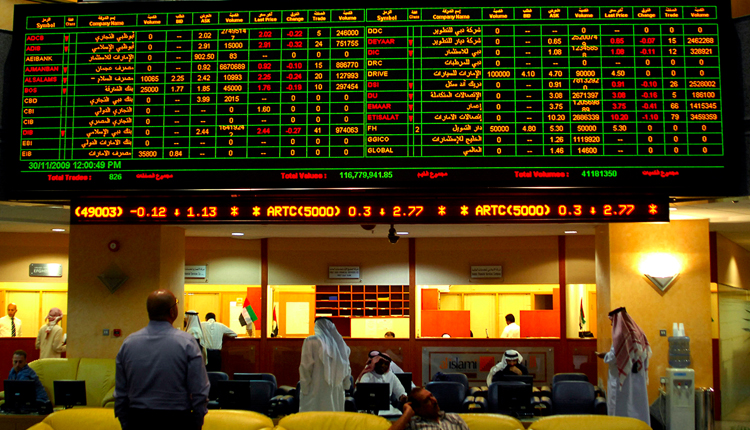Saudi markets fell sharply in early trading on Wednesday, as almost all the kingdom’s banks dropped at the start of the second phase of introducing Saudi stocks into the MSCI emerging markets index.
The inclusion of Saudi stocks in the MSCI and FTSE indexes has attracted billions of dollars from foreign investors, who have been net buyers every month this year, sending the Saudi index up nearly 20 percent at its peak in May.
But since then, geopolitical and trade tensions have reduced the Saudi index’s year-to-date gains to 4.4 percent.
Analysts have said the expected impact of the second phase has already been priced into the market. On Wednesday, the Saudi index declined 1.4 percent with Al Rajhi Bank losing 1.3% and the country’s largest lender National Commercial Bank decreasing 2 percent.
Outside Saudi Arabia, major Gulf markets were mostly subdued. In Qatar, the index was 1 percent down as market heavyweight Industries Qatar shed 2 percent.
In Abu Dhabi, the index slid 0.2 percent, mainly driven down by the country’s biggest lender First Abu Dhabi Bank which lost 0.5 percent.
Dubai bucked the trend with its index gaining 0.3 percent, led by a 0.6 percent rise in Emaar Properties and a 0.4 percent increase in Emirates NBD.
The second phase of the inclusion of Saudi shares in the MSCI index brought its weighting of Saudi shares up to 2.8 percent, from 1.45 percent.
“Saudi Arabia has attracted $18 billion in foreign portfolio equity inflows so far this year, as foreign investors have significantly increased their exposure to Saudi equities ahead of upgrade,” the Institute Of International Finance (IIF) said in a note.
“We expect the second phase of the upgrade to attract an additional $5 billion in equity inflows to the oil-rich kingdom.”
IIF added that inflows to Saudi Arabia would have been even higher it not for concerns about global trade and the escalation of regional tensions.
Source: Reuters
